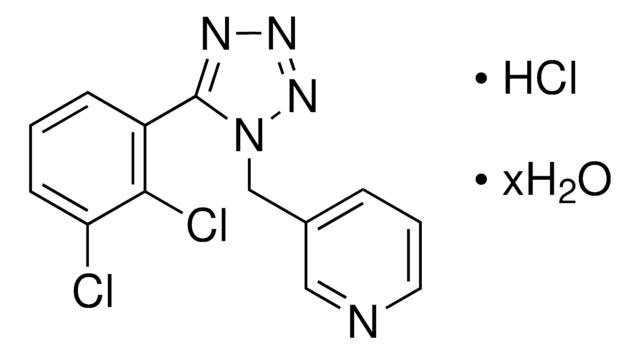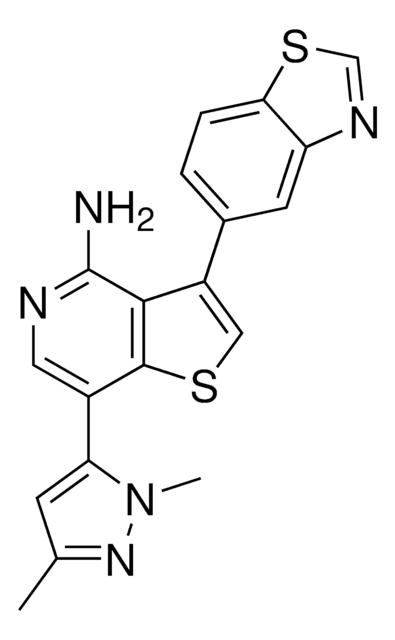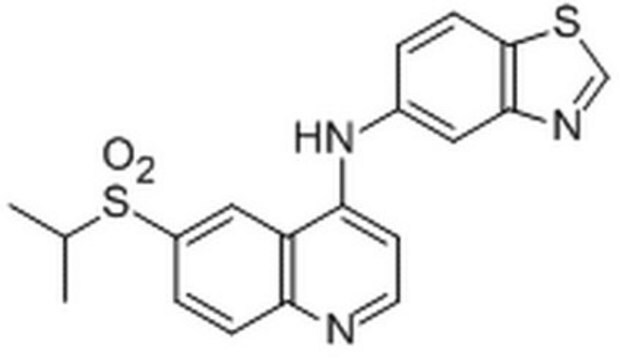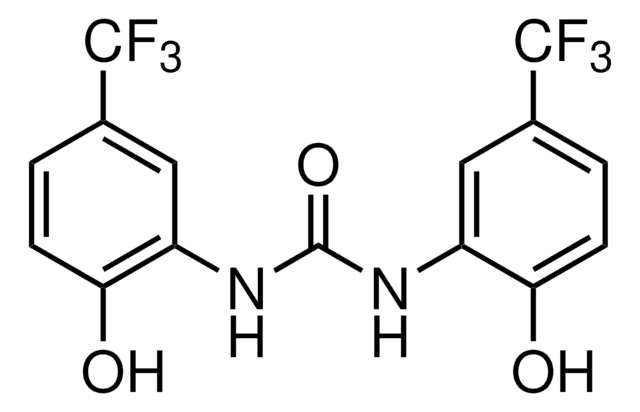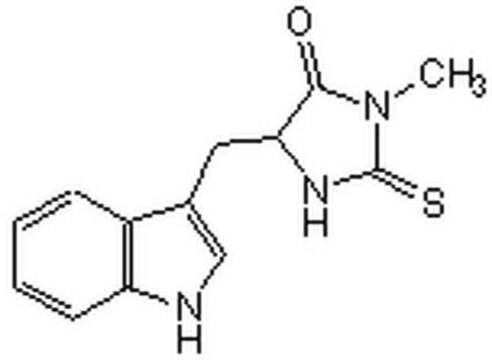SML2152
10Panx1 trifluoroacetate salt
≥98% (HPLC)
Synonym(s):
10Panx trifluoroacetate salt, Trp-Arg-Gln-Ala-Ala-Phe-Val-Asp-Ser-Tyr trifluoroacetate salt, WRQAAFVDSY trifluoroacetate salt
About This Item
Recommended Products
Assay
≥98% (HPLC)
form
film
color
white to beige
shipped in
wet ice
storage temp.
−20°C
SMILES string
[nH]1c2c(c(c1)C[C@H](N)C(=O)N[C@@H](CCCN=C(N)N)C(=O)N[C@@H](CCC(=O)N)C(=O)N[C@@H](C)C(=O)N[C@@H](C)C(=O)N[C@@H](Cc4ccccc4)C(=O)N[C@@H](C(C)C)C(=O)N[C@@H](CC(=O)O)C(=O)N[C@@H](CO)C(=O)N[C@@H](Cc3ccc(cc3)O)C(=O)O)cccc2
InChI
1S/C58H79N15O16/c1-29(2)47(56(87)70-42(26-46(77)78)53(84)72-44(28-74)55(86)71-43(57(88)89)24-33-16-18-35(75)19-17-33)73-54(85)41(23-32-11-6-5-7-12-32)69-49(80)31(4)65-48(79)30(3)66-51(82)40(20-21-45(60)76)68-52(83)39(15-10-22-63-58(61)62)67-50(81)37(59)25-34-27-64-38-14-9-8-13-36(34)38/h5-9,11-14,16-19,27,29-31,37,39-44,47,64,74-75H,10,15,20-26,28,59H2,1-4H3,(H2,60,76)(H,65,79)(H,66,82)(H,67,81)(H,68,83)(H,69,80)(H,70,87)(H,71,86)(H,72,84)(H,73,85)(H,77,78)(H,88,89)(H4,61,62,63)/t30-,31-,37-,39-,40-,41-,42-,43-,44-,47-/m0/s1
InChI key
JCJASTVQGSKHKZ-QZHJRRRASA-N
Application
Biochem/physiol Actions
Storage Class Code
11 - Combustible Solids
WGK
WGK 3
Flash Point(F)
Not applicable
Flash Point(C)
Not applicable
Choose from one of the most recent versions:
Certificates of Analysis (COA)
Sorry, we don't have COAs for this product available online at this time.
If you need assistance, please contact Customer Support.
Already Own This Product?
Find documentation for the products that you have recently purchased in the Document Library.
Our team of scientists has experience in all areas of research including Life Science, Material Science, Chemical Synthesis, Chromatography, Analytical and many others.
Contact Technical Service